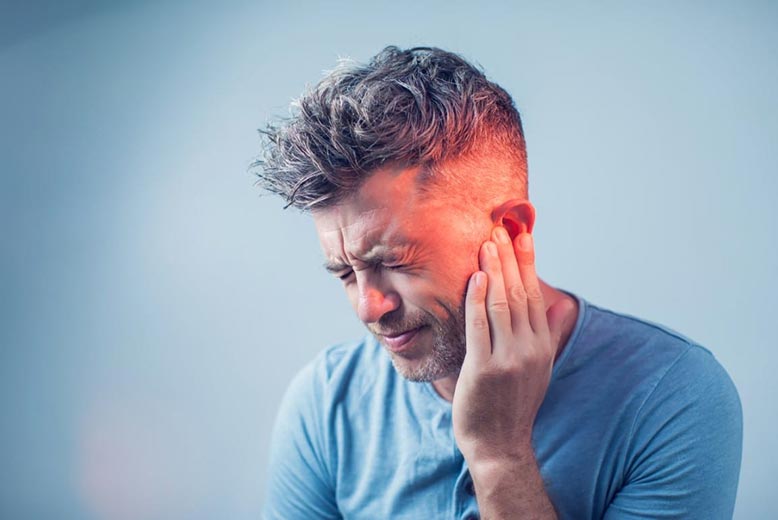Table of Contents
What is Tinnitus
Sound-based therapies for tinnitus
For many people with tinnitus, sound therapy provides relief from the constant ringing and helps them sleep better. Sound therapy can also help distract you from the noise of tinnitus and make it less bothersome.
Hearing aids
Sound-masking devices
Tinnitus sound-masking devices are small electronic devices that can be worn in the ear like a hearing aid. They produce low-level white noise or soft music you can hear, but at a level just below the distracting tinnitus sounds.
There are many different models available, some that look like small hearing aids and others that resemble small Bluetooth headsets. These sound-masking devices might be of benefit if your tinnitus tends to occur when you’re in bed and there’s less environmental noise around to mask the tinnitus. (We also suggest trying white noise to help fall asleep.)
Modified or customized sound machines
These are more sophisticated than white noise machines. They provide a more natural sounds. Your audiologist will work with you to customize the sound based on your individual tinnitus sounds. The machine has settings so that it can be adjusted as your tinnitus changes over time
Behavioral therapies for tinnitus
Behavioral therapy is the most common form of tinnitus treatment. It involves learning ways to cope with the ringing sound in your ears and to reduce the impact it has on your life.
Cognitive behavioral therapy
Cognitive behavioral therapy for tinnitus (CBT-t) is an experimental treatment for tinnitus. It involves the restructuring of thoughts and actions related to tinnitus that are considered to worsen the condition or make it more difficult to treat experientially. CBT-t is based on the premise that beliefs, thoughts and actions about tinnitus affect a patient’s emotional reactions and can be altered to reduce negative reactions and improve coping ability.
Progressive tinnitus management
Progressive tinnitus management (PTM) is a multidisciplinary approach to the treatment of tinnitus and hyperacusis. PTM is based on an integrative model of care that combines psychoeducation, tinnitus retraining therapy, cognitive-behavioral therapy, relaxation techniques and sound therapy. The goal of this approach is to help individuals cope with their tinnitus and reduce its impact on their quality of life.
Medications for tinnitus
Tinnitus is a hearing condition that causes the patient to perceive noises in their ears or head when there is not an external source of the sounds. There are no medications that cure tinnitus, but some may help reduce the severity of symptoms or complications.
Anti-anxiety drugs
Doctors often prescribe anti-anxiety medications for patients experiencing anxiety related to tinnitus. Benzodiazepines such as lorazepam (Ativan) and alprazolam (Xanax) are classified as sedatives in low doses and as hypnotics in higher doses. Benzodiazepines may also help with sleep if taken before bedtime. Side effects include daytime drowsiness, dizziness and headaches.
Antidepressants
Tricyclic antidepressants, such as amitriptyline and nortriptyline (Pamelor), aren’t approved by the Food and Drug Administration to treat tinnitus. Still, doctors sometimes prescribe them that way to help people cope with severe cases of chronic tinnitus. These medications may help improve symptoms by increasing serotonin levels in your brain. Side effects include dry mouth, blurred vision, constipation and difficulties urinating.
How is tinnitus diagnosed?
Tinnitus is diagnosed by a medical history and physical exam. Imaging tests, such as a CT scan or MRI, may be ordered to rule out any structural abnormalities. Hearing tests help determine whether there is hearing loss.
Your doctor will review your symptoms and ask you about any exposure to loud noises, medications you’re taking, and medical conditions that may be causing tinnitus.
Tests used to diagnose tinnitus include:
Hearing (audiological) exam. As part of the test, you’ll sit in a soundproof room wearing earphones through which will be played specific sounds into one ear at a time. You’ll indicate when you can hear the sound, and your results are compared with results considered normal for your age. This can help rule out or identify possible causes of tinnitus.
Imaging tests. Your doctor may order one or more imaging tests to help evaluate possible causes of tinnitus. Imaging tests may include X-rays of your head and neck (including your inner and middle ear structures), magnetic resonance imaging (MRI) of your head and brain, or computed tomography (CT) scan of your head and brain.
Alternative treatments for tinnitus?
Tinnitus can be a frustrating condition for those who suffer from it. Fortunately, there are a host of effective treatment options available to victims of tinnitus, with many success stories to back them up.
Unfortunately, the elusive nature of tinnitus is that there is no single solution that provides relief to all sufferers. For some tinnitus sufferers, they have found success in alternative treatments such as herbal remedies, acupuncture and hypnosis. While the results of these treatments vary greatly from person to person, they are worth attempting if you haven’t had luck with other treatment plans.
Herbal Remedies
In the realm of herbal remedies for tinnitus, ginkgo biloba has proven to be one of the most popular with positive results reported by many people. Ginkgo biloba is a tree native to China that has been used for thousands of years in traditional Chinese medicine. In recent years, it has been discovered that ginkgo biloba may have some positive effects on blood flow and circulation. Poor circulation is considered by many in the medical community to be one cause of tinnitus, which makes ginkgo biloba an ideal herbal remedy for this condition.
Takeaway
If you often hear ringing in your ears, you may have tinnitus. Tinnitus isn’t a condition itself it’s a symptom of an underlying condition, such as age-related hearing loss, ear injury or a circulatory system disorder. Although bothersome, tinnitus usually isn’t a sign of something serious. Although it can worsen with age, for many people, tinnitus can improve with treatment. Treating an identified underlying cause sometimes helps. Other treatments reduce or mask the noise, making tinnitus less noticeable.
